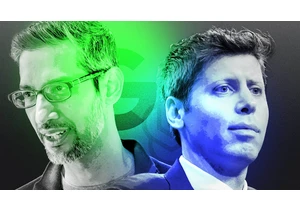When you’re the CEO of a multibillion-dollar corporation, your words have weight. As Apple chief executive Tim Cook just found out, they can also have a price—$61 million per word, to be exact.
Six years after Cook made comments that a class-action lawsuit alleged were misleading, the tech company reached a $490 million settlement to put the matter to bed this week. The lawsuit claimed Cook concealed falling demand for iPhones in China, and that the misrepresentations could have easily lead investors to misjudge the value of the stock.
It started on November 1, 2018, when Cook told investors on an analyst call that although the company was experiencing challenges in countries such as Brazil, India, Russia, and Turkey, where currencies had weakened, he asserted that he “would not put China in that category.”
Just a few days after the call, the company told its suppliers to limit production.
Then, unexpectedly, on January 2, 2019, Cook announced Apple would slash its quarterly revenue forecast by up to $9 billion. He blamed trade tensions between China and the United States for the lowered forecast. It was massively significant, given it was the company’s first time dropping predictions since the iPhone’s launch in 2007. The next day, shares fell by 10%—a loss of $74 billion in market value.
Court papers showed Apple denied liability in the class-action lawsuit, but settled to avoid incurring more costs as well as the distractions of a more lengthy lawsuit.
Earlier this month, after sales in China missed analysts’ targets, Cook told Reuters: “We did feel good about the plus 6% (revenue growth) for iPhone. We had particularly strong double-digit growth on iPhone in emerging markets outside of China. The iPhone is doing well in those markets.” The CEO added, “China is the most competitive smartphone market in the world, and that hasn’t changed.”
Shawn Williams, a lawyer for the shareholders, called the $490 million settlement an “outstanding result.” While the payment is massive, for Apple, it’s really only about a day’s worth of earnings. So, yes, multibillion-dollar corporation CEOs’ words may come with a cost, but at the very least, they’re good for it.
Autentifică-te pentru a adăuga comentarii
Alte posturi din acest grup

Tesla has scheduled an annual shareholders meeting for November, one day after the

TikTok is facing a

Welcome to AI Decoded, Fast Company’s weekly newsletter that breaks down the most important news in

The internet’s latest obsession: training and cheering on anthropomorphized anime horses as they race around a track.
First released in 2021 as a mobile game for iOS and Android, Uma


In recent years, people have welcomed AI into their lives with open arms: as personal

Cybersecurity and
